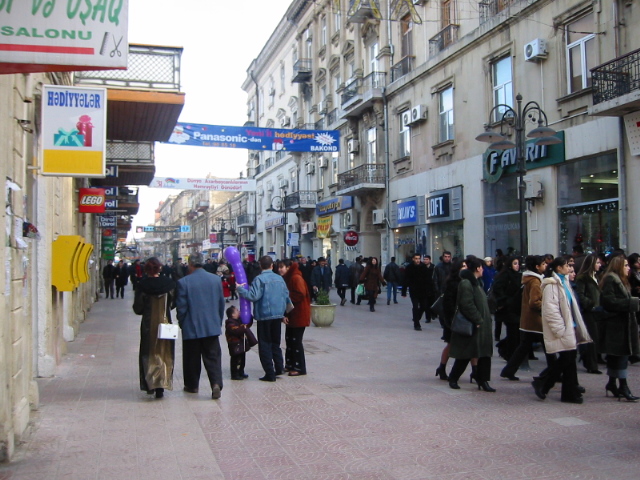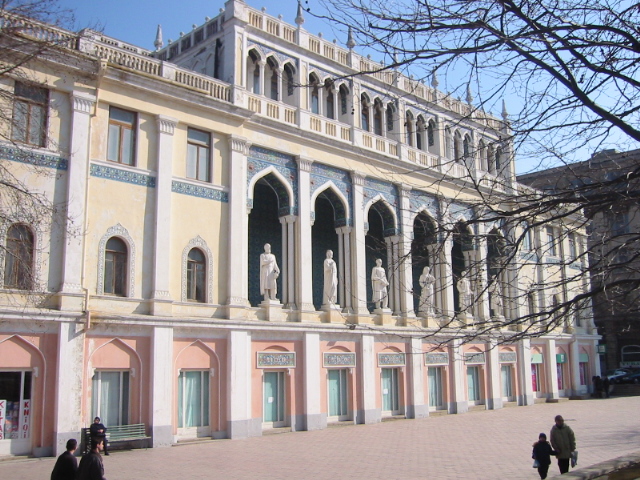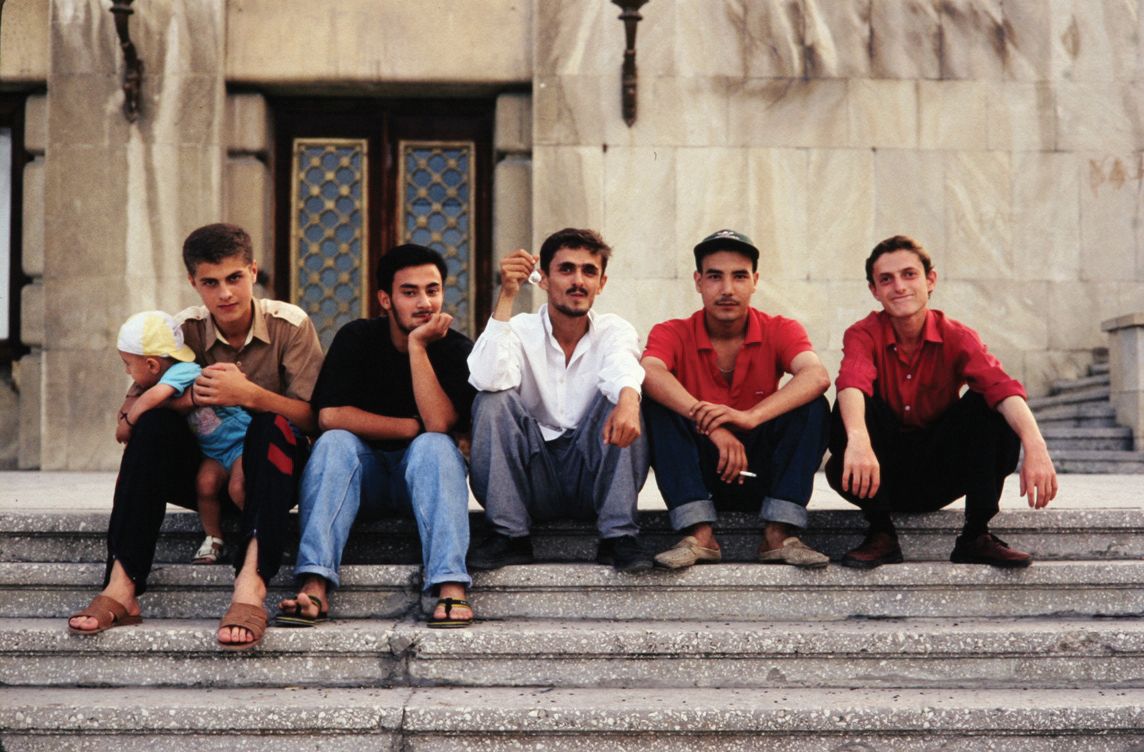A few years ago at a conference, I held a large banner that read: “Azerbaijanis: God’s gateway people to the Muslim world.” One quizzical individual pondered a few minutes before asking me whether this was a real place.
Azerbaijanis get that a lot.

From the mountains of Ararat and the Azeri region of Naxchevan (named from the old Azeri words Nuh chixan, “where Noah came out,” based on Genesis 8:4), to the highest echelon of power in Iran (the supreme leader, Ayatollah Khameini, is an Azeri), Azerbaijanis are a people who shouldn’t be ignored.
Dispersed Among the Nations
Until the beginning of the 19th century, Azerbaijani homelands were part of the Persian Empire. Following war and treaties with Russia, the Persian Empire ceded to Russia what is now Azerbaijan and, along with it, significant Azerbaijani populations in the city of Derbent became Russian territory.
At the beginning of the 20th century, many Azerbaijanis fled and resettled in the eastern provinces of Turkey. Current estimates of Azerbaijanis in Turkey are between 500,000 and 600,000. In the country of Georgia, their numbers range from 240,000 to 500,000. In Russia and the former Soviet Union, 1 million Azerbaijani form a significant minority. And in northern Iraq, a people called the Turcoman, who speak Azerbaijani, are estimated to be 2.5 million. These Azerbaijani of the dispersion speak Azerbaijani, Farsi, Turkish, Russian, Arabic and many other local languages.

In 2009, the translation of the Bible into modern-day Azerbaijani was finalized, at last making the whole of God’s Word accessible to believers in their mother tongue. Moreover, the first Azerbaijani study Bible was published last year. With God’s help, these resources will help Azerbaijani believers grow in the gospel and take it to the nations.
Least-Reached People Reaching Other Peoples
The Azerbaijanis are considered a least-reached people group. Estimates of the number of Azerbaijani believers worldwide range from 7,000 to 14,000. Yet a growing number have recently come to faith in Christ. Many understand the unique role they have in reaching their own and other peoples.
 Brother Idris, for example, grew up into a life of violence and crime in Azerbaijan. As he was poised to commit a serious crime, Christ appeared to him in a dream, exposing his life and the consequences of his path. He informed the gang he’d changed his mind about committing the crime; they thought he was crazy and went ahead without him. All were arrested. Idris gave his life to God, and over the years God has used him to pastor a network of small churches reaching his own people as well as Azeris in Georgia, Iran, and Russia.
Brother Idris, for example, grew up into a life of violence and crime in Azerbaijan. As he was poised to commit a serious crime, Christ appeared to him in a dream, exposing his life and the consequences of his path. He informed the gang he’d changed his mind about committing the crime; they thought he was crazy and went ahead without him. All were arrested. Idris gave his life to God, and over the years God has used him to pastor a network of small churches reaching his own people as well as Azeris in Georgia, Iran, and Russia.
Another brother, Feridoon, grew up as an atheist Marxist in Iran. He believed God was a crutch for the weak-minded. A believing classmate challenged Feridoon to read the New Testament and, not wanting to look scared, he did. The words of doubting Thomas struck him. That night Jesus appeared in his bedroom and showed him his nail-pierced wrists. Terrified, Feridoon fled to a well-known local believer’s house, where he was encouraged and counseled. Over the course of a few days, he began to realize Christ is indeed real, and he gave his life to him. Since then Feridoon has led many to the Lord in various nations. He has translated the Bible into several languages, and he speaks to thousands about Christ by radio and TV programs—all because a friendly student challenged him to read the New Testament.
God is at work among the Azerbaijani people.
New Challenges
Events of the past two years have brought new challenges and diminished the free flow of people and ideas in the region: renewed persecution in Iran, local fears and insecurities prompted by the growth of ISIS, unfavorable news reports about the unjust policies of Azerbaijani leaders, and the threat of renewed hostilities between Azerbaijan and Armenia over the disputed territory of Nagorno-Karabakh. An increasing focus on nationalism has led to legislation and business policies that have prompted some expatriate workers to leave.
Nevertheless, we continue to see growth and maturation in Azerbaijan’s church. In many ways, they really are God’s gateway people to the Muslim world.
How You Can Pray
Would you join in prayer for your Azerbaijani brothers and sisters?
- Pray that God would embolden and empower Azerbaijani believers to reach others for Christ.
- Pray for growing unity among the few Azerbaijani churches in Azerbaijan, and for local believers and leaders to be strong in faith and patient in trials.
- Pray that believing workers who bring needed skills and professions to Azerbaijan would benefit the country and be given gospel opportunities.
- Pray for missionaries and church planters to the Georgian Azeri minority, and for ministries mighty in prayer for spiritually dark places.
Is there enough evidence for us to believe the Gospels?
 In an age of faith deconstruction and skepticism about the Bible’s authority, it’s common to hear claims that the Gospels are unreliable propaganda. And if the Gospels are shown to be historically unreliable, the whole foundation of Christianity begins to crumble.
In an age of faith deconstruction and skepticism about the Bible’s authority, it’s common to hear claims that the Gospels are unreliable propaganda. And if the Gospels are shown to be historically unreliable, the whole foundation of Christianity begins to crumble.






























